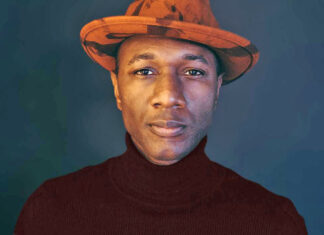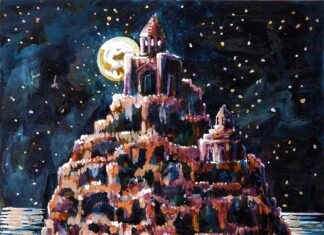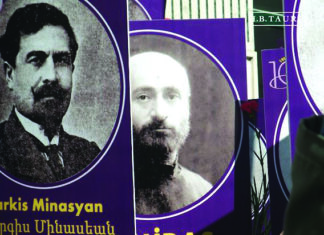The world of Trashland (Nauset Press, 2023) is a world of doom and gloom. A garbage dump and a cemetery, separated by a narrow dirt road, and a nearby lunatic asylum/prison provide the setting. Normal human beings live in an environment where human values have completely broken down. The protagonist Gam, a muckraking journalist, probes this world to expose its inhumanity and to return dignity to “his own people.” The novel opens with Gam relieving himself standing on a hill above the Armenian capital of Yerevan. The acrid fumes set the tone for the “shit-filled air that clogged everything up” and the putrid smell of the smoldering trash dump the citizens rummage through to dig out their dinners.
There is no suggestion in the book that this world, where leaders oppress and murder and where the police repress the citizens with brutal force, will change anytime soon, except perhaps that the “black air” will become heavier and the “grey stench” more fetid and nauseating. Indeed, the crimes committed in this rotting world seem tame, almost “humane,” when juxtaposed with the ruthless assaults and the destruction we have brought upon ourselves. They are, nonetheless, in Donikian’s words, “the same eternal crimes.”
While the ills the novel conjures are universal, the specifics are intrinsically Armenian. References to the corruption and the pollution of the pre-Independence Soviet days and the Post-Independence Republic of Armenia abound. The first three Presidents of the new Republic who failed to work for the good of the people are directly evoked. The garbage dump guard’s favorite sow, the one “with the largest teats,” is named after the second President’s wife, Bella. The lewd poems the characters recite, and the profanities, “some of the spiciest in our language,” in the words of the guardian of the cemetery gate, help spill the rage, the bitterness and the helplessness of the citizens whose only source of sustenance is the rotting dump.
Alongside the scathing criticism, however, the novel also reveals the deep love Donikian has for his country. Mount Ararat, with the purity of its eternal snows, “floating atop an eternal space, wedged between men and the sky high above,” is always in the background. The all-too-familiar expressions — aghber djan, Seko djan, djanikess — and the names of the streets that the trash truck drivers take to transport the waste from Yerevan to the dump site in Noubarashen — Abovian Street, Mashdots Avenue — convey a sweet feeling of intimacy. The goodness and the generous spirit of Gam’s mother, Anna, whose funeral procession launches the novel, is also ever-present. Anna inspires her son to fight for the peace and the justice his people deserve. “Can you abandon the sky that gives birth to you…and abandon your own people to their decay?” Gam muses.
Most compelling are the ”dumpster stories,” accounts of the individual tragedies of the garbage pickers. We learn of old Susho who bent down so low to sort out the trash “that she was practically one with the ground.” This “zibil collector” is, in her own words, “living proof that this country is sick.” We also learn of Larissa djan who, along with the stray dogs, the pigs and the rats, digs into the decomposing waste to feed her “poor balik . . . her husband lost in God knows what corner of Russia.” Even as they expose the humiliating and dehumanizing lives of these miserable souls, the stories help bring back the human into a world lost to human dignity.
Donikian’s fairy-tale ending, with the sky, so pure, so calm, that it “filled men with joy” and bathed everything in a luminous glow, only reinforces “the chaos and the stench,” for it ignores, in Donikian’s words, “everything that went into the making of this novel . . . where the guard at a trash dump curses the businessman responsible for a nation’s woes . . . where the dead flee their tombs to smell life’s fresh air . . . where a buried woman still suffers from the slightest harm committed against her son and where her son, a certain Gam, dead or alive, fights valiantly in one world before falling inexorably into another, whispering on the way down Der Voghormia. Der . . .” Despair remains the dominant mood.









